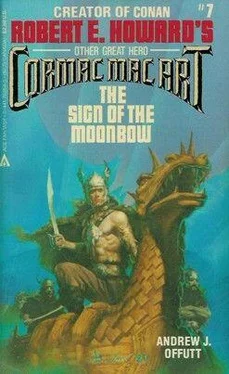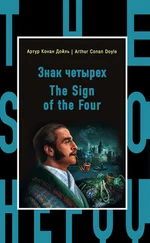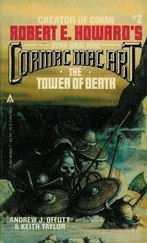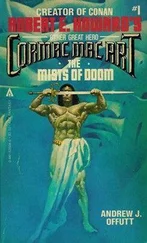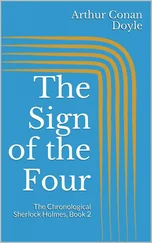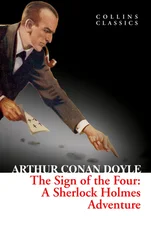Andrew Offutt - The Sign of the Moonbow
Здесь есть возможность читать онлайн «Andrew Offutt - The Sign of the Moonbow» весь текст электронной книги совершенно бесплатно (целиком полную версию без сокращений). В некоторых случаях можно слушать аудио, скачать через торрент в формате fb2 и присутствует краткое содержание. Жанр: Фэнтези, на английском языке. Описание произведения, (предисловие) а так же отзывы посетителей доступны на портале библиотеки ЛибКат.
- Название:The Sign of the Moonbow
- Автор:
- Жанр:
- Год:неизвестен
- ISBN:нет данных
- Рейтинг книги:3 / 5. Голосов: 1
-
Избранное:Добавить в избранное
- Отзывы:
-
Ваша оценка:
- 60
- 1
- 2
- 3
- 4
- 5
The Sign of the Moonbow: краткое содержание, описание и аннотация
Предлагаем к чтению аннотацию, описание, краткое содержание или предисловие (зависит от того, что написал сам автор книги «The Sign of the Moonbow»). Если вы не нашли необходимую информацию о книге — напишите в комментариях, мы постараемся отыскать её.
The Sign of the Moonbow — читать онлайн бесплатно полную книгу (весь текст) целиком
Ниже представлен текст книги, разбитый по страницам. Система сохранения места последней прочитанной страницы, позволяет с удобством читать онлайн бесплатно книгу «The Sign of the Moonbow», без необходимости каждый раз заново искать на чём Вы остановились. Поставьте закладку, и сможете в любой момент перейти на страницу, на которой закончили чтение.
Интервал:
Закладка:
The training of mind and body of that second Cormac, son of Art, began almost at his birth.
It was a proud name he bore-and it was the undoing both of himself and his father. For it made even more nervous the Ard-righ or High-king who sat his throne at Tara Hill with the shakiness of fear on him, for he ruled ever fearful of being toppled and slain. And Cormac mac Art was a magic name. And so mysterious death had come upon Art of Connacht, and his son had fled lest he suffer that same fate. Too, he concealed his great name.
Though far too young for the skill he had with arms, he was tall and strong for his age so that he could pass for one older. As “Partha mac Othna,” of Ulahd, he betook himself to Leinster. There, concealing age and name, he was employed as weapon-man in the service of the king.
Eirrin’s High-king was no emperor. Each kingdom ruled itself. Nor was the kingdom of Leinster a friend to its northerly neighbour Meath, where rose Tara, the Seat of Kings over Kings. Partha mac Othna served well and distinguished himself, and was given command-which gained him enemies, envious men. As none knew his age, none knew of his trysts with a girl who was his first love and he hers-Samaire, daughter of the king in Leinster.
Too well did “Partha” distinguish himself, and it was both Leinster’s monarch and High-king Lugaid did treachery on him. Was they saw that he was goaded until he slew a man at Fair-time, when the Peace of the King prevailed. Having broken that peace by doing arms-death, Partha/Cormac had no defense and no choice: he must die.
Again Cormac fled.
An exile from Connacht he had been; now he was exiled from all Eirrin, where among his ancestors had been rulers.
Northward on the Plain of the Sea he made his way, to Alba, land of the Scoti and the Picts. There he found employment on a farm-until there came a Pictish attack. His weaponish skills then showed themselves to the astonishment of all-and to the consternation and death of the attackers. Having thus betrayed his skills, he was recruited into the service of the king of Dal Riada of Alba or Scot-land. Again he fared well and distinguished himself-too well. Again was treachery done on him, and again by a crowned man, his own king. Betrayed to the Picts, he languished in a cold and filthy cell, an object of hatred and mockery. Nor was he fed; he was to die, and slowly.
He survived only because of a Pictish woman who had recently been bereft of both husband and babe; she gave him nourishment as only she could.
Eventually, Cormac mac Art escaped.
Alienated, hating kings and trusting none, he took up his career as a reaver or pirate of the Narrow Sea. Right well the well-born exile of Eirrin fared at piracy, with his own ship and his own crew. Yet there was that he would not do: never did he raid the shores or ships of Eirrin.
Time came when he was captured-and this time, flung into a cell even more cold and more filthy, he had a companion. The other’s name was Wulfhere, and he was a giant even among the tall Danes. Each was the only companion available to the other, the only voice and listening ears; they became friends. To him Cormac lied about his age. Wulfhere Splitter of Skulls was older, and must not know how young was this stout weapon-man whose brain was so keen and whose counsel so wise that Wulfhere gave listen, and was guided by it. It would never have occurred to Wulfhere to keep back a bit of their meagre food, that they might use it to lure and entrap more food: the rats of that prison in which they were to die. Thus they kept up their strength, though their warders knew not.
It was bloody their escape was, and not long after the two were again asea. Both joined the crew of a renegade Dane, a-reaving.
Their ship streamed a wake of blood, for their captain feared nothing and raided the shores of Britain and Alba as well. Nor could he listen to counsel, and he got his death in Britain of that arrogance and stupidity. Indeed it was the skill and wiles of Cormac and Wulfhere enabled the others to escape, and all knew it. Natheless the dead captain’s second took command, and him a man of foul disposition who showed considerably less than gratitude or respect to the two best among them, the Gael and the giant Dane.
It was Wulfhere slew that abominable man a few months later. A fair fight it was, and the dead man loved by none, and Wulfhere Hausaklulfr was captain. He was counseled by his friend from Eirrin, and his so dark and scarred and dour, a man whose life had been laid out for him by the treachery of kings and whose scars went all the way in, to the brain.
They two achieved a measure of fame, and infamy. Their ship was everywhere and undefeatable. Years passed, with them friend to few and feared by many. Yet they achieved no wealth and saved little. It was the weather itself, the wrath of Eirrin’s seagod Manannan mac Lir, that defeated them. Thus were they swept ashore on that nameless isle whereon they found Kull’s castle, sorcerously standing intact after so many millennia, now the keep for booty-storing of a band of renegade Norsemen.
And there was more slaying to be done.
There too, after so many years, Cormac found Samaire and Ceann her brother. Both were victims of the treachery of a king-their own older brother. Cormac and Wulfhere, with those few of their crew who had survived the wrath of Manannan, freed the two of Leinster from their Norse captors. It was Samaire who persuaded Cormac to return to Eirrin-and that only at night, apart from the others.
Long months later, having trekked across half of Eirrin and fought his way through Picts and highwaymen so that his exploits gave rise to legends, Cormac reached Tara in Meath.
By dint of arms at Fair-time, he won the title Champion of Eirrin-though under a false name. It was after that series of contests that he announced his true identity, before the great triennial meeting of all the kings of Eirrin. He was Champion; he had slain the highwaymen of Brosna Wood on whose hands was the blood of many; he had saved a fisherman and his family and doubtless others from a Pictish attack, so that none survived. (And in all these adventures had Samaire wielded arms alongside him). Yet death was demanded on that old charge-by Feredach, king in Leinster, the older brother of Samaire and Ceann. Despite him, Cormac was offered a single chance to save his own life, to prove his worthiness to the god Behl. He accepted instantly.
Under his own name at last, Cormac mac Art survived with honour the Trials for Him Who would be of the Fiann-though both a druidic mage-of Leinster-and two hired killers-of Leinster-attempted to slay him while he was unarmed and unsuspecting. And after twelve years he was Champion of Eirrin, and pronounced free and welcome both by High-king and druidic council-for the latter said that by passing the Tests of Finn he had been exonerated and welcomed by Behl of the sun, Himself.
Cormac soon interrupted his rest and his basking in the light of fame. With Samaire and Bas and an Eirrin-born crew, he returned to the isle of Kull. They would simply pick up all that Norse booty and return to Eirrin-to finance the maneuverings of Ceann and Samaire against their ruling brother-who had got the throne by the murder of his older brother. The isle they called Samaire-heim, of Wulfhere’s gallant naming.
It became Doom-heim, for there Thulsa Doom awaited, plotting blackest vengeance on him he knew to be Kull reborn.
During that time, so recently past, Cormac knew horror unequalled even in his extraordinary life. And more blood flowed. And eventually they had escaped, so few now of the two ships’ crews that had fared to the awful isle of bare stone. Now he was come here, to this tiny island of green and peace, for water-and once again Cormac had reddened his sword and added more deaths to his list of deeds.
Читать дальшеИнтервал:
Закладка:
Похожие книги на «The Sign of the Moonbow»
Представляем Вашему вниманию похожие книги на «The Sign of the Moonbow» списком для выбора. Мы отобрали схожую по названию и смыслу литературу в надежде предоставить читателям больше вариантов отыскать новые, интересные, ещё непрочитанные произведения.
Обсуждение, отзывы о книге «The Sign of the Moonbow» и просто собственные мнения читателей. Оставьте ваши комментарии, напишите, что Вы думаете о произведении, его смысле или главных героях. Укажите что конкретно понравилось, а что нет, и почему Вы так считаете.
